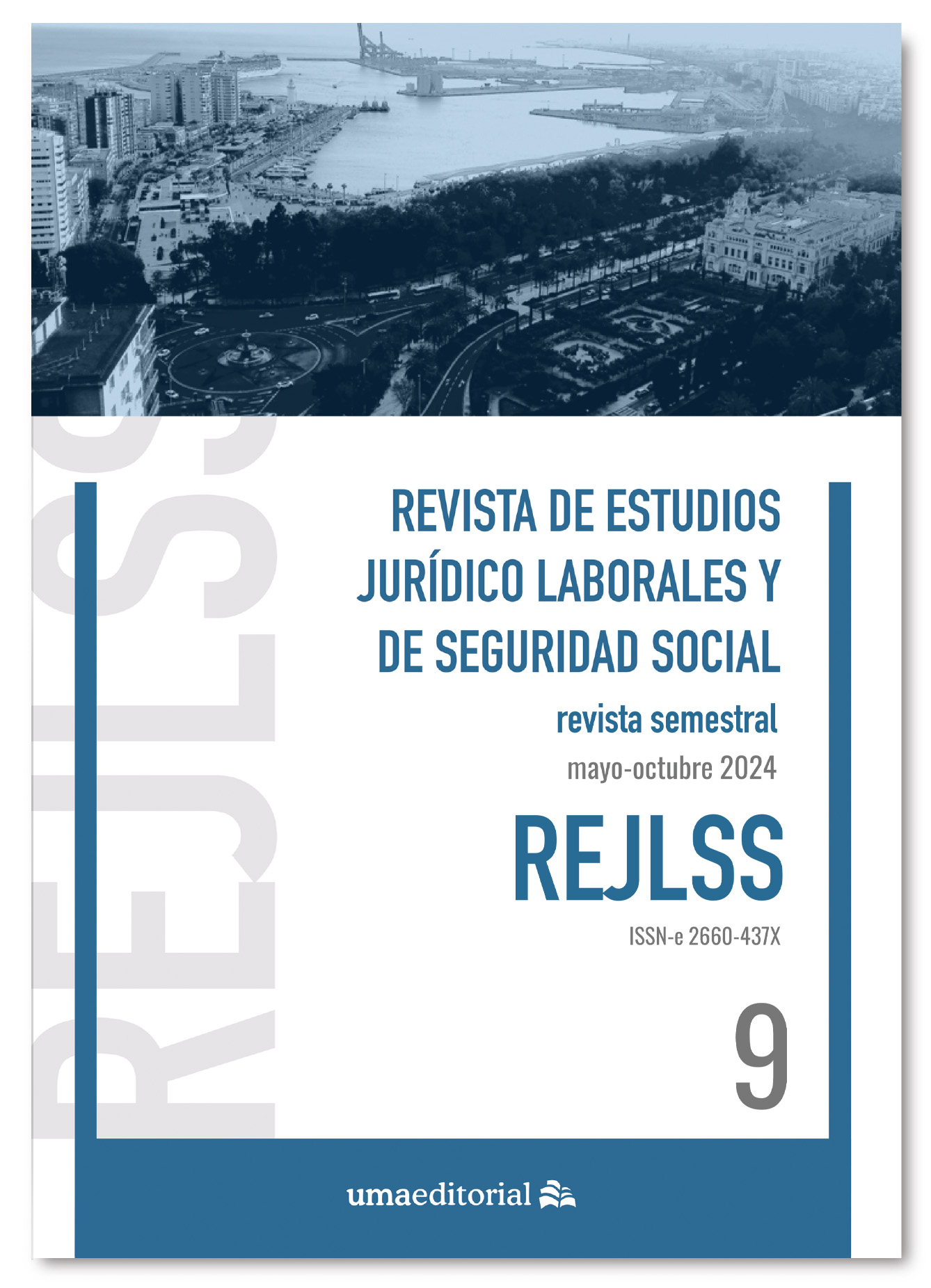Workers have the right to be granted by the company a 15-day paid permit to participate as a candidate in an electoral campaign
DOI:
https://doi.org/10.24310/rejlss9202419718Keywords:
paid leave, inexcusable public and personal duty, electoral campaign, passive suffrage, discrimination, Law 15/2022Abstract
For now, art. 37.3.d) of Royal Legislative Decree 2/2015, of October 23, which approves the consolidated text of the current Workers’ Statute Law (ET) contemplates that: “The worker, with prior notice and justification, may be absent from work, with the right to remuneration, for any of the reasons and for the following time: d) For the time essential, for the fulfillment of an inexcusable duty of a public and personal nature, including the exercise of active suffrage. When a specific period is stated in a legal or conventional norm, it will be subject to what it provides regarding the duration of the absence and its financial compensation.” The question, therefore, focuses on finding out whether it can be understood as an inexcusable duty of a public and personal nature that a worker, with the status of candidate of a political organization, can enjoy paid leave to actively intervene in an electoral campaign.
Downloads
Metrics
Publication Facts
Reviewer profiles N/A
Author statements
Indexed in
-
—
- Academic society
- N/A
- Publisher
- Universidad de Málaga. UMA Editorial
Downloads
Published
How to Cite
Issue
Section
License
Copyright (c) 2024 Daniel Toscani Giménez

This work is licensed under a Creative Commons Attribution-NonCommercial-NoDerivatives 4.0 International License.
In the Revista de Estudios Juridico Laborales y de Seguridad Social (REJLSS) we are clearly committed to a policy of open access to scientific knowledge (See Berlin Declaration).
Those authors who have publications with this journal accept the following terms:
This journal provides immediate free access to its content under the principle of making research freely available to the public. All the contents published in the REJLSS are subject to the Creative Commons license
Attribution-NonCommercial-NoDerivatives 4.0 International (CC BY-NC-ND 4.0)
Copyrights are of two kinds: moral and patrimonial. Moral rights are perpetual, inalienable, non-transferable, inalienable, unattachable and imprescriptible prerogatives. In accordance with Spanish copyright legislation, the authors who publish in REJLSS retain the moral right over their work, as well as the ownership of the patrimonial right, which will be transferred to the University of Malaga for its dissemination in open access.
The patrimonial rights, refer to the benefits that are obtained by the use or disclosure of the works. REJLSS is published in open access and is exclusively authorized to perform or authorize by any means the use, distribution, dissemination, reproduction, adaptation, translation or transformation of the work.
It is the responsibility of the authors to obtain the necessary permissions of the images that are subject to copyright.
Authors whose contributions are accepted for publication in this journal retain the non-exclusive right to use their contributions for academic, research and educational purposes, including self-archiving or depositing in open access repositories of any kind.
The electronic edition of this magazine is edited by the Editorial of the University of Malaga (UmaEditorial), being necessary to cite the origin in any partial or total reproduction.
The authors may adopt other non-exclusive license agreements for the distribution of the version of the published work (eg: deposit it in an institutional telematic archive or publish it in a monographic volume) provided that the initial publication is indicated in this magazine.
Authors are allowed and recommended to disseminate their work through the Internet (eg, in institutional telematic archives or on their website) before and during the submission process, which can produce interesting exchanges and increase citations of the published work.







19.png)
